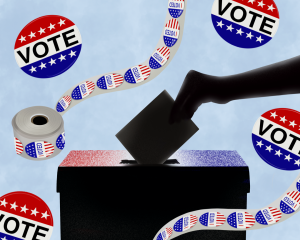UT should make their ‘Tobacco-Free Campus’ policy more effective
October 4, 2022
In a painfully ironic scene, cigarette butts littering the streets accompany signs indicating a “tobacco-free” campus. The smell of cigarette smoke lingers through the air as the physical evidence remains in and around dorms, football games and outside educational buildings.
In April 2012, UT instituted its Tobacco-Free Campus policy, “prohibit(ing) the use of all forms of tobacco products on University property.” Despite UT’s institution of tobacco prevention measures, smoking is increasingly prevalent on campus. UT established this policy as a means to “protect people from unwanted and involuntary exposure to tobacco and passive smoke.” However, students are frequently exposed to secondhand smoke regardless of this rule, in part due to its relatively lax nature.
UT needs to take further action toward discouraging young adults from smoking on campus to provide a safer and healthier environment for its students.
Elham Ziaei, a neuroscience junior, follows the “UT Tobacco Free” Instagram. She talked about her perspective as a student on the initiative.
“I feel like (the effectiveness) very much depends on how it’s implemented,” Ziaei said. “Having policies like this definitely helps, but the way in which it’s carried out speaks more to how it’s going to be effective.”
Generation Z continues to face the growing issue of vaping and tobacco usage. It’s important for University administration to intervene as a way to prevent smoking on campus. To combat the issue, UT must revive its tobacco initiative.
Nossé Ovienmhada, coordinator of the University’s Tobacco-Free Campus program and policy, talked about the current state of the program.
“The University’s Peers Against Tobacco ambassador program paused from 2020-2022 due to the COVID-19 pandemic,” Ovienmhada said in an emailed statement. “We are working to restart the program with the goal of reviewing and collecting data about smoking trends on campus and identifying and replacing damaged or removed Tobacco-Free Campus signage by the end of spring.”
Administration’s long-term break in relaunching this program has negatively impacted its students. This two-year lag demonstrates a level of irresponsibility, and it’s crucial that the program is reinstituted as soon as possible. In facilitating a peer-led group that can advocate for a cleaner and healthier campus, there’s a possibility to make this policy much more effective.
“I feel like if our own peers talk about this a lot more, it’s more effective than faculty coming and talking about the policy,” Ziaei said. “It resonates with students more when other students talk about it.”
By creating peer-led discussions as a means to achieve the “tobacco-free” campus goal, UT will effectively prioritize its students. This program will not only create conversation about the dangers of second-hand smoke, but it will also create cleaner spaces on campus.
Ultimately, through the implementation of peer discussion and more effectively addressing tobacco use, UT can become the “Tobacco-Free” campus it hopes to be.
Carr is a journalism freshman from Dallas, Texas.















